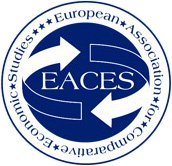Getting Old in Eastern Europe. Social, Political and Economic Dimensions of Ageing in the Past and Present
East and Southeast Europe present a unique situation when it comes to ageing: fertility has declined fast to very low levels; emigration rates are high whereas immigration levels are low; mortality is relatively high, healthcare systems are weak and unhealthy life-styles widespread. High Corona-19 mortality rates and low life expectancy are obvious consequences. At the same time, pension systems face huge challenges and poverty rates among older persons are high. Observers often frame ageing in terms of “decline” or “crisis”, instead of highlighting its potentials and tackling the root causes of the social predicament of old people. How did old people in East and Southeast Europe end up in such a difficult situation? What dilemmas does the region face today? And what are the likely scenarios for the future? At the same time, any study of these problems must take into account the heterogeneity of ageing and other demographic trends in East and Southeast Europe. The demographic, social, and economic characteristics as well as policy responses vary from country to country and indeed within each country. The situation requires a solid comparative analysis which considers intersectional inequalities, including gender, ethnicity, residence, and education. This conference asks: what economic, social, and political factors influence ageing, and how does ageing affect social relations, economic potential, and policymaking? Historically, what factors have contributed to the creation of institutions supporting the older population, and which specific aging patterns and practices can be detected in East and Southeast Europe through the 19th and 20th centuries? The 2024 Annual Conference of the Leibniz Institute for East and Southeast European Studies will investigate ageing today and the historical dimensions of this process from multiple perspectives. We seek to highlight the economic, social, and political aspects while also inviting contributions that address future scenarios. The conference aims at cross-disciplinary dialogue. We therefore invite proposals from different social sciences, including history, economics, social anthropology, political science, public health, and sociology, that address
the central questions of the conference. While we want to focus on East and Southeast
Europe, we also encourage comparative and transregional perspectives. We also want to
explore the impact of the international level on the region. We invite contributions applying
qualitative, quantitative, and mixed methods approaches.
The full text of the Call for Papers is here.
Event category: Events